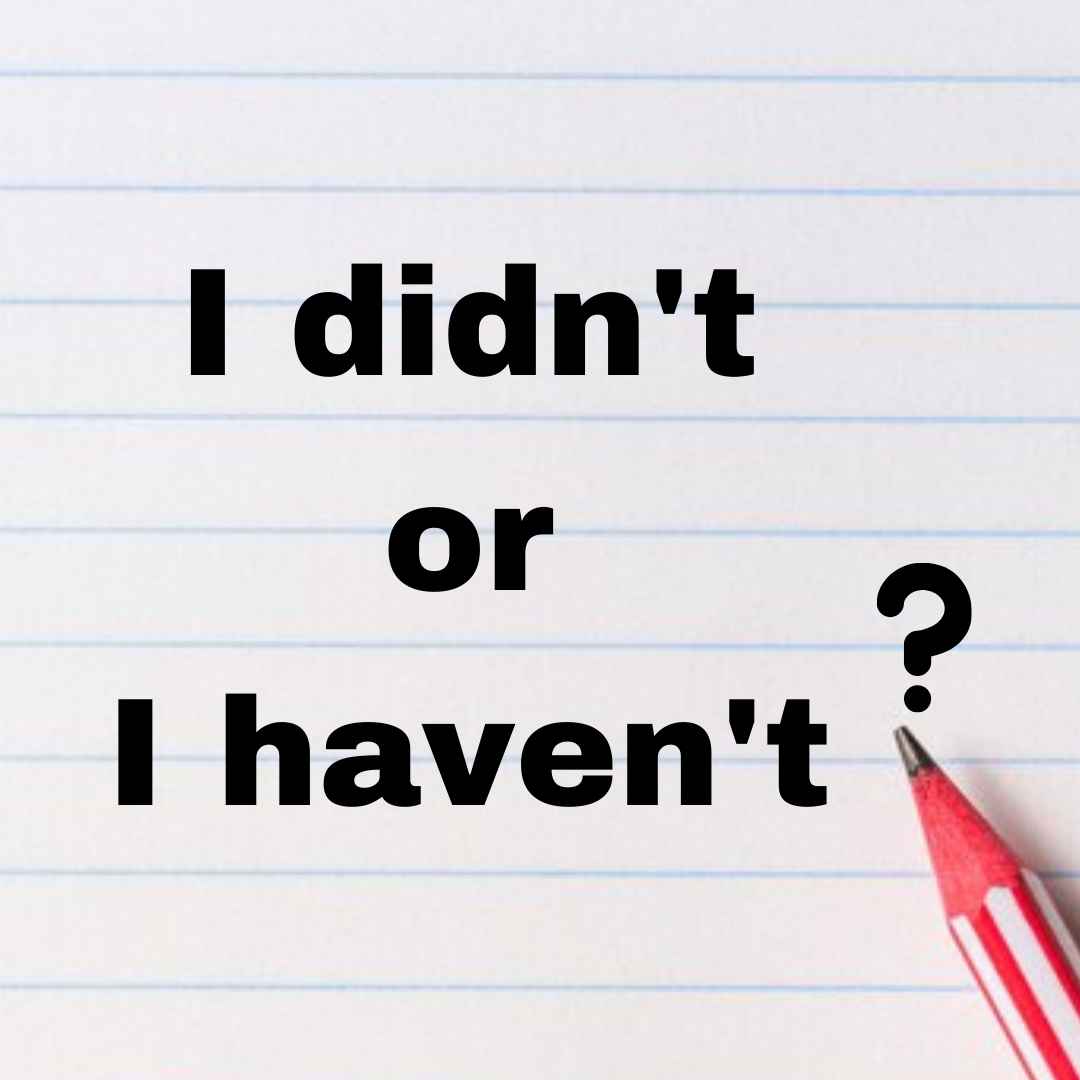I Didn't or I Haven't: Which Is Correct?

Understanding the difference between ‘I didn’t’ and ‘I haven’t’ can help improve your English language skills. These two common expressions are used to talk about past actions or present situations, each with its own grammar rules and meanings.
Grammar and Dictionary Rules:
I Didn’t:
- This is a short form of saying “I did not.”
- It’s used to talk about something that happened in the past, but you didn’t do it.
- Example: “I didn’t go to the party last night because I was busy with homework.”
I Haven’t:
- This is a short form of saying “I have not.”
- It’s used to talk about something that hasn’t happened yet, but there’s still a chance it might.
- Example: “I haven’t finished my homework yet, but I’ll do it soon.”
Grammar Rules:
Verb Tenses:
- “Didn’t” is used with past tense verbs, like “went” in “I didn’t go.”
- “Haven’t” is used with present perfect tense verbs, like “finished” in “I haven’t finished.”
Negation:
- Both “didn’t” and “haven’t” are used to make a sentence negative.
- Example: “I didn’t see the movie” means you didn’t watch it, while “I haven’t seen the movie” means you haven’t watched it yet.
Read also: Shine Bright or Shine Brightly Difference
Dictionary Definitions:
Didn’t:
- This is a contraction (shortened form) of “did not.”
- Example: “I didn’t eat breakfast this morning.”
Haven’t:
- This is a contraction of “have not.”
- Example: “I haven’t finished my book yet.”
Examples with Grammar Rules:
Using “I Didn’t”:
- Past Tense: “I didn’t know you were coming to the party.”
- Simple Negation: “She didn’t buy any fruit at the store.”
Using “I Haven’t”:
- Present Perfect Tense: “I haven’t seen that movie yet.”
- Future Action: “I haven’t packed my bag for the trip.”
Additional Grammar Tips:
Contractions:
- “Didn’t” and “haven’t” are contractions, where two words are combined into one (e.g., did + not = didn’t).
Time Frame:
- “Didn’t” talks about things that already happened in the past.
- “Haven’t” talks about things that haven’t happened yet or are still happening now.
Understanding these grammar rules helps you use “I didn’t” and “I haven’t” correctly in your writing and conversations.